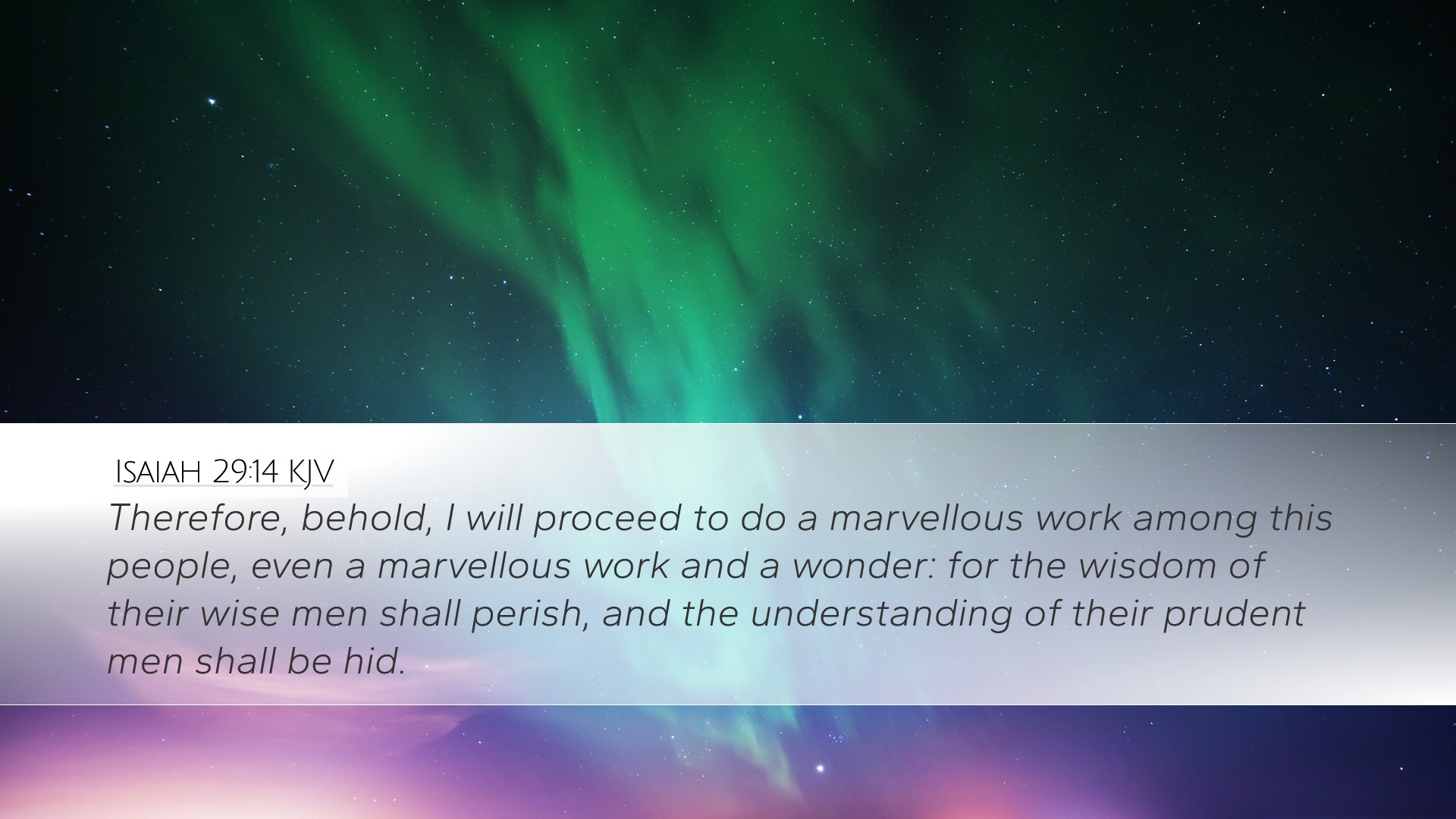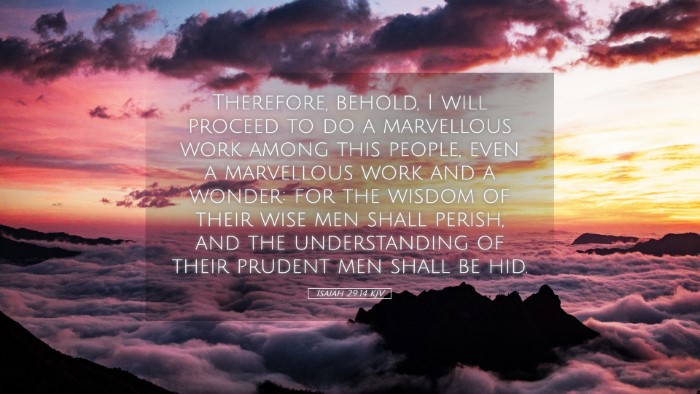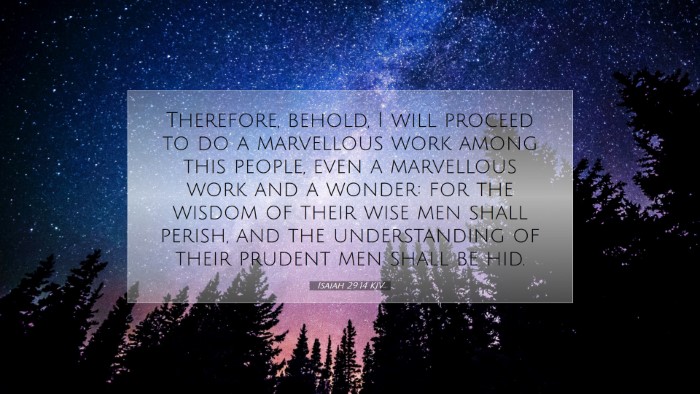Bible Commentary on Isaiah 29:14
Verse: Isaiah 29:14 - "Therefore, behold, I will again do a marvelous work among this people, a marvelous work and a wonder; for the wisdom of their wise men shall perish, and the understanding of their prudent men shall be hid."
Introduction
The verse encapsulates a profound message about divine intervention and the futility of human wisdom in comparison to God’s sovereign purposes. Commentary by public domain scholars brings forth various insights into the meaning and implications of this prophetic declaration.
Contextual Analysis
The context surrounding Isaiah 29 is crucial for understanding this verse. The chapter addresses the spiritual state of Israel and the judgment that God will bring upon the people due to their hypocrisy and reliance on worldly wisdom. In the face of impending doom, God promises to intervene in a way that will display His glory and power.
Insights from Matthew Henry
Marvelous Work: Henry emphasizes that the "marvelous work" refers to God's extraordinary acts of deliverance and revelation that surpass human understanding. This work highlights God's omnipotence and His ability to bring forth good even from adverse circumstances.
Wisdom of Men: He contrasts God’s wisdom with that of humanity, noting that the wisdom of the wise men will perish. This serves as a reminder that human intellect and prudence are ultimately limited and cannot grasp the fullness of God’s plans.
Insights from Albert Barnes
Divine Intervention: Barnes notes that this "marvelous work" indicates a new revelation of God that will astonish and confound the learned and the wise. He elaborates that God's ways are often hidden from those who are wise in their own eyes, making the revelation of His might a source of bewilderment to them.
The Purpose of God’s Action: Barnes discusses how this intervention is not merely punitive; it serves redemptive purposes. The awe-inspiring acts of God will reorient the hearts of the people back to Him, leading to true repentance and understanding.
Insights from Adam Clarke
Pursuit of Superiority: Clarke interprets the verse within the socio-political climate of Israel. The "wise men" mentioned represent not only scholars and philosophers but also rulers and leaders whose plans are ultimately thwarted by God’s will.
Understanding Hidden: The phrase "the understanding of their prudent men shall be hid" reflects Clarke's notion that human reason will fail where divine wisdom prevails. He believes this serves as an admonition against relying solely on human insight without acknowledging divine guidance.
Theological Implications
This verse carries significant theological weight, particularly in relation to God's sovereignty, the human condition, and the nature of revelation.
- God’s Sovereignty: The affirmation that God will act in a "marvelous" way reinforces His ultimate authority over human history and our lives.
- Human Limitations: The warning that the wisdom of men will perish serves as a humbling reminder of humanity’s finite understanding and the need for divine insight.
- Redemptive Nature of Revelation: Understanding God's intervention as redemptive in nature provides hope that even in judgment, God seeks to draw His people back to Himself.
Practical Applications for Pastors and Church Leaders
There are several practical applications derived from this verse that can be beneficial for pastors, church leaders, and scholars:
- Preaching God’s Majesty: Use this verse to inspire sermons on the glory of God’s wisdom and the necessity of divine intervention in the lives of believers and the church as a whole.
- Encouraging Dependence on God: Encourage congregations to place their trust not in human wisdom or understanding, but in the revelations of God through Scripture and the Holy Spirit.
- Confidence in God’s Plan: Remind the congregation that despite the uncertainties faced in the world, God’s marvelous works are at hand, and His plans will come to fruition.
Conclusion
Isaiah 29:14 serves as a powerful reminder of God’s unparalleled wisdom and the futility of human attempts to outsmart divine purposes. As believers, we are called to trust in the Lord, who works in ways beyond our understanding and orchestrates both judgment and redemption for His people.


